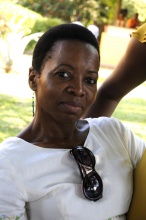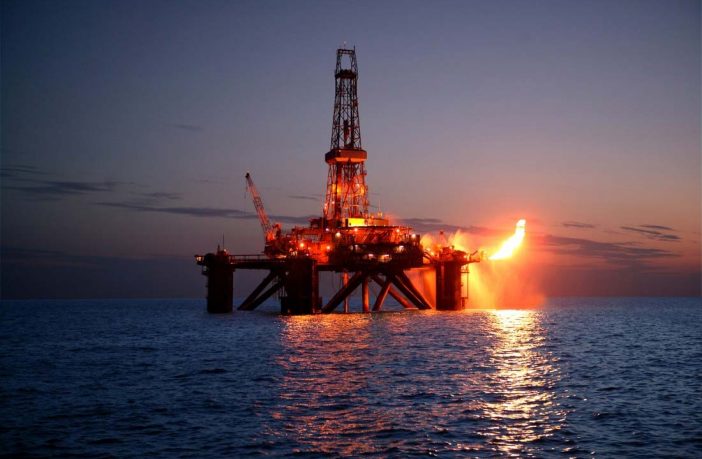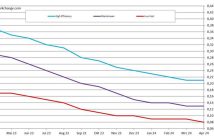- One of Mozambique’s leading environmental activists, Alda Salomão, says that the government has ignored the legal imperative of negotiating with and securing consent from communities for the implementation of natural gas projects in Cabo Delgado province, in the violence-torn north of the country.

Alda Salomão is an environmental lawyer, land specialist and social activist.
Salomão, the founder of the environmental organisation Centro Terra Viva (CTV), is one of the best known figures defending the rights of communities in Palma district, in Cabo Delgado, which hosts natural gas developments, the largest of which has been suspended indefinitely following an armed attack by rebels against the town of Palma on 24 March.
“There was no such consent, there was no such negotiation, in the ways imposed and determined by legislation,” Salomão stressed in an interview with Portuguese news agency Lusa.
Related news: Total declares force majeur at Mozambique gas project and pulls out completely
The community that used to live in the 7,000 square kilometres on the Afungi peninsula where the industrial complex is being built by a consortium led by Total, a France-based multinational, felt “culturally assaulted” when the government unilaterally decided to transfer the local cemetery to another area, said Salomão. “That region is Muslim-based, as we know, you don’t mess with the dead, it is sacrilege to mess with the dead and this issue was absolutely ignored.”
The government and the company took the decision to move the graves and give money to the families, even if some refused, recalled the activist.
“To what extent was it imperative to transfer the graves in order to occupy a good portion of the area allocated to the project to build housing for the company workers?” she asked rhetorically. “Does it make any sense to attack, with this violence, culturally, the families, to substitute the occupation of the areas, including the areas of the cemeteries for a worker’s dwelling?”
The attitude of the authorities on such matters provoke in communities, especially deeply religious ones, a mixture of “contempt, disregard and outrage,” said Salomão.
The process of allocating new homes financed by Total to the families displaced by the gas project also strained the relationship between the two sides, because the first designs for the homes did not take into account the communities’ cultural aspects, namely the fact that most families are polygamous as part of their Muslim heritage.
The other issue, according to Salomão, was the “lack of transparency” in the compensation paid to families removed from the area earmarked for the industrial complex to the resettlement area that was supposed to be enough for them to survive during the lifetime of the gas complex.
“What happened in Palma and happens in all parts of this country where we have investment projects, whether they are public or private, is that you get there and you tell people: ‘you are going to have to leave here` and then you say ‘you are going to benefit this way or that way’,” she said.
Salomão maintained that the public consultations for the implementation of Total’s project in the Afungi peninsula were marked by intimidation and the limitation of freedom of expression of community members and human rights activists.
“When the Government decided to use the police to impose the company’s presence in the villages [in the area set aside for the project]we immediately said that that attitude was a wrong attitude, an illegal attitude, it was an incorrert attitude and it was an attitude that had all the ingredients to produce revolt,” Salomão said.
In meetings between the authorities, representatives of investors and communities, the police were always “on top” – saying that anyone who spoke out against it would go to jail, she alleged. “In fact, many of us who were there trying to accompany the communities and families were threatened by the government and the police, because [in the authorities’ understanding]we were inciting the families to oppose the project.”
Adding to the discontent in Palma, as throughout Cabo Delgado province, she continued, is the fact that local young people have not been included in the employment opportunities generated by the natural gas developments, due to a lack of qualifications.
“I don’t want to say that the problem in Cabo Delgado is rooted only in this process [of implementing the projects], but clearly it seems to me that this process will have contributed, to a large extent, to the feeling of revolt,” she said.
Resentment at the way in which the natural gas megaprojects are being implemented may have created the conditions for the infiltration into local communities on the part of the so-called insurgents, Salomão argued.
Armed groups have been terrorising Cabo Delgado since 2017, with responsibility for some of the attacks claimed by the local affiliate of Islamic State, in a wave of violence that has already caused more than 2,500 deaths, according to the ACLED conflict registration project, and displaced 714,000 people, according to Mozambique’s government.
The most recent attack occurred on 24 March on the town of Palma, claiming dozens of lives and leaving many more injured, in a still ongoing assessment.
The authorities have since regained control of the town, but the attack prompted Total to abandon indefinitely the site of the gas project, which was scheduled to start production in 2024 and on which many of Mozambique’s expectations of economic growth in the next decade are anchored.











